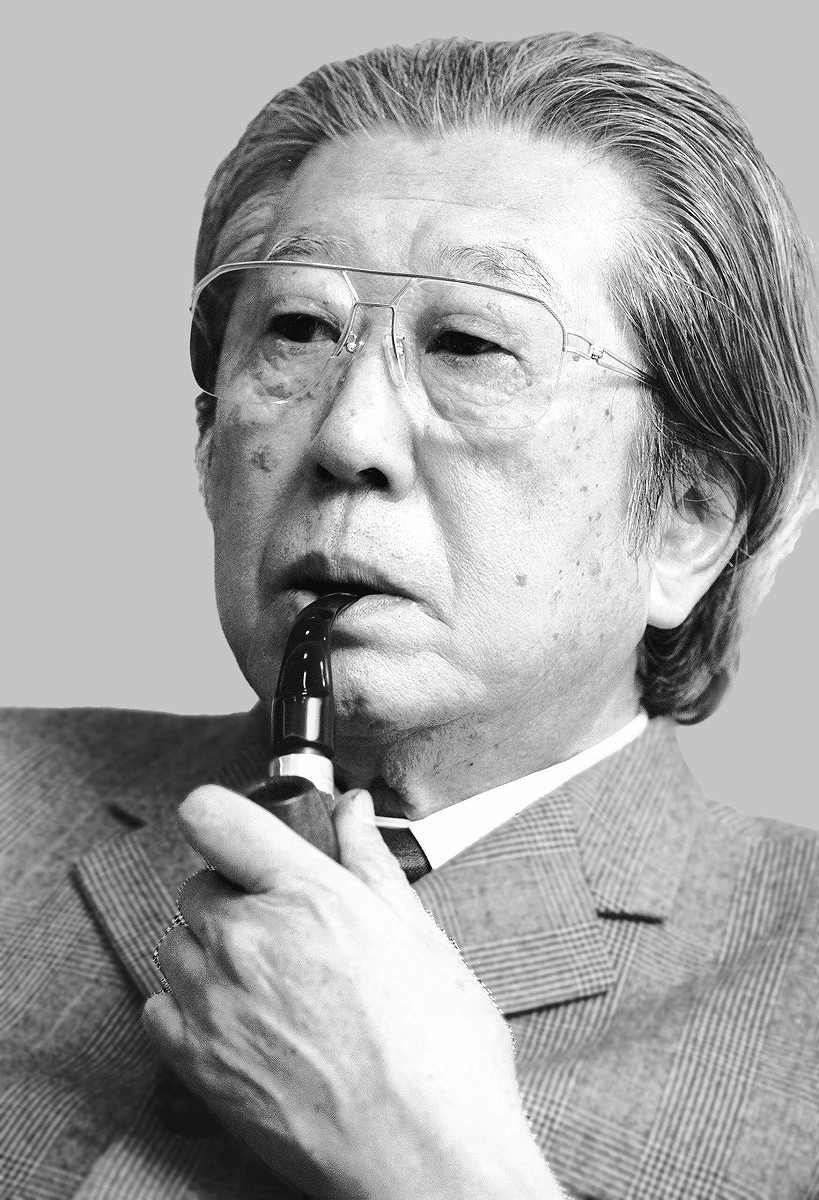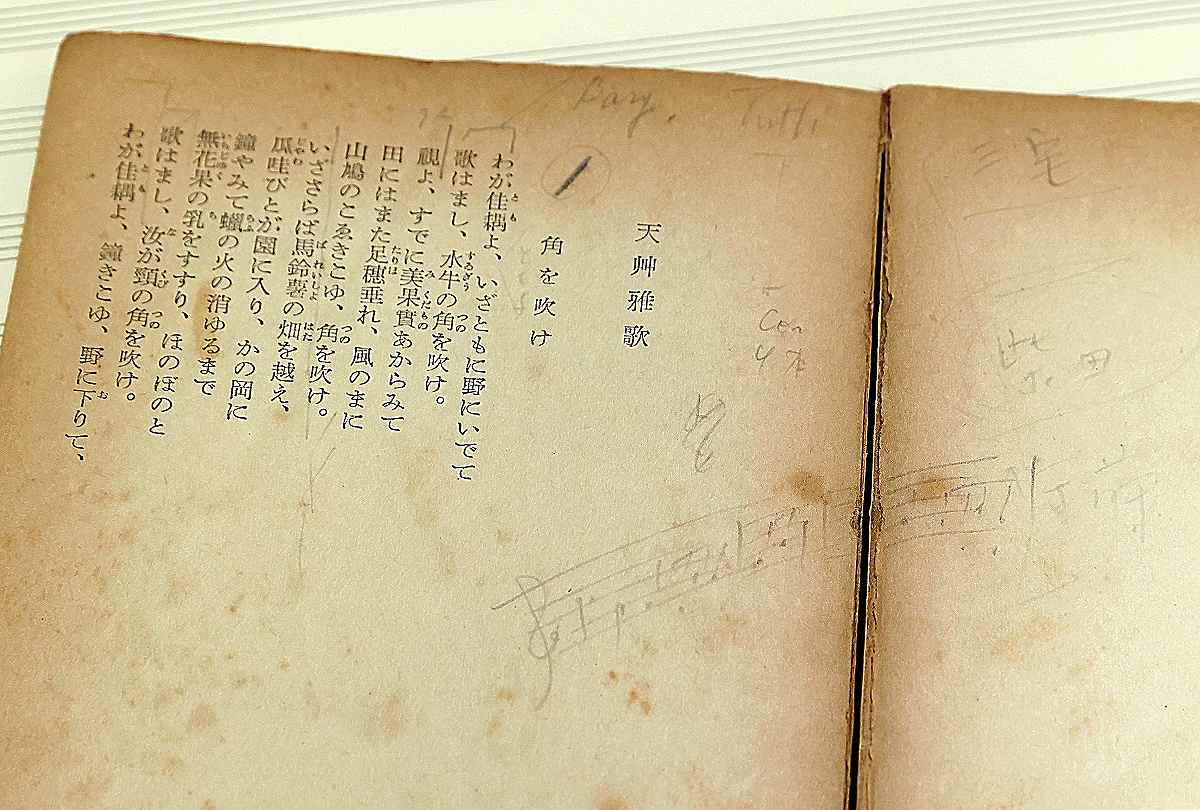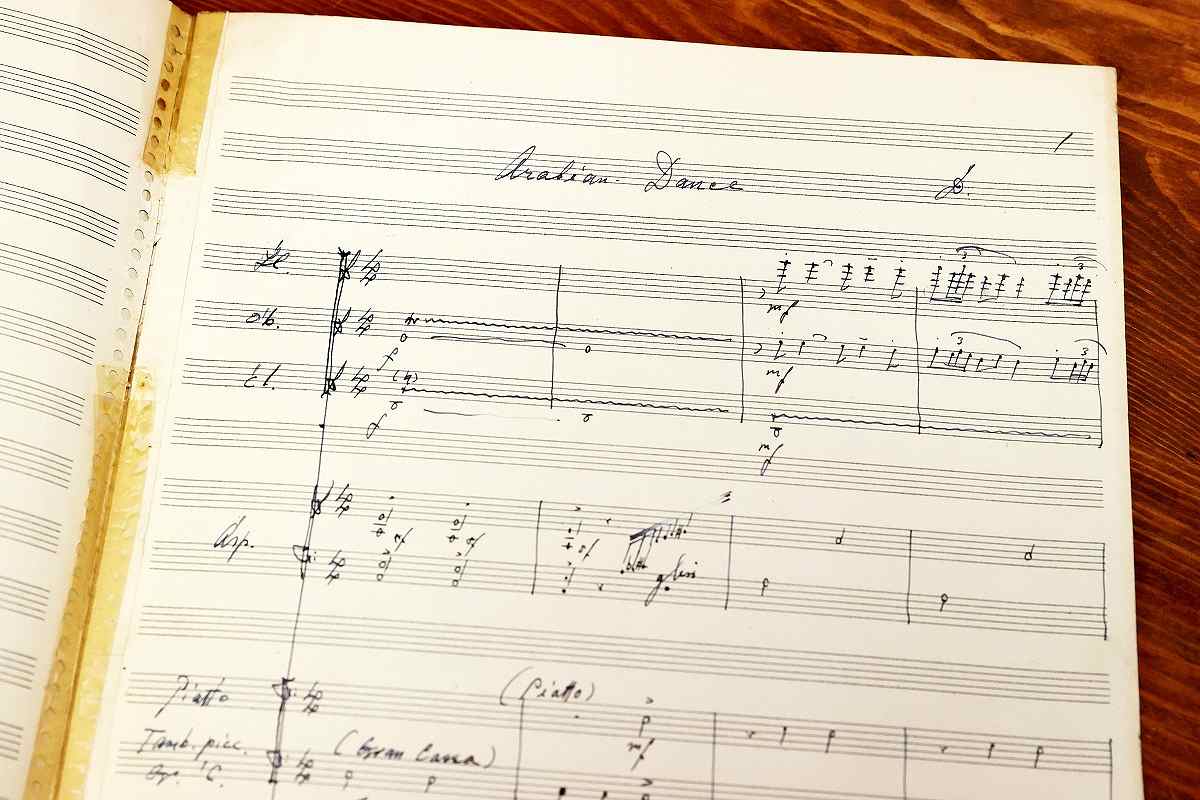Trove of Documents from Postwar Composer Ikuma Dan to Be Released Online; Includes Handwritten Score for ‘Arabian Dance’

Ikuma Dan
6:00 JST, June 10, 2024
Planning notes, musical scores and other documents written by Ikuma Dan, a major postwar composer, are set to be released about 20 years after his death, it has been learned.
These include notes on his plan for an unfinished symphony he was working on until just before his death and a handwritten musical score for an orchestral work for which only a recording was known of previously.
These documents, which help elucidate how the great composer created his music, are expected to be released to the public digitally this autumn, the 100th anniversary of his birth.
Dan was born in Tokyo in 1924 and died in 2001. He is known for his wide range of compositions, ranging from symphonies and the opera “Yuzuru” (“Twilight Crane”), to the children’s song “Zosan” (Elephant) and “Radio exercise no. 2.” He was recognized by the government as a Person of Cultural Merit in 1999 and received the Yomiuri Literature Prize for his essay “Paipu no Kemuri” (Pipe smoke).
The documents set to be released were examined by music critic Koichi Nishi, who conducts research on Dan’s music. Norihiko Dan, an architect and Dan’s son, offered Nishi about 2,000 musical scores and other materials left in a study in his father’s house in Yokosuka, Kanagawa Prefecture.
In his final years, Dan had been writing his seventh symphony based on “Jashumon,” a poetry collection by Kitahara Hakushu, whom he deeply admired. However, Dan passed away suddenly during a trip to China. Among his belongings was found a paperback edition of the poetry collection. Next to one poem he meant to use for a solo, Dan wrote a short two-bar melody, a name believed to be that of a soloist and “tutti,” an Italian word that indicates everyone should perform together, showing Dan had been refining his plan for the piece. There also was a blank five-line notation titled “Jashumon Hikyoku” (Jashumon secret music).

A copy of poetry collection “Jashumon,” in which Dan wrote a two-bar melody, among other notes
Among the cache’s musical scores, there was one for an orchestral work titled “Arabian Dance.” The piece is believed to have been used in a music special for TBS Radio that was organized by Dan himself and broadcast in 1958.
Dan sought his own form of expression within the traditions of Western music. In 1956, he accompanied an archaeological expedition from the University of Tokyo to Iraq and Iran as the music director for a documentary. He studied local music in the region and after returning to Japan released several pieces, including the colossal symphonic suite “Journey through Arabia” in 1958. “Arabian Dance” is believed to be related to these works.
“My father created music by connecting to many different people,” said Norihiko. “I would like people to know how he created his works and become familiar with them.”

Ikuma Dan’s handwritten musical score for a piece titled “Arabian Dance”
Top Articles in Culture
-

BTS to Hold Comeback Concert in Seoul on March 21; Popular Boy Band Releases New Album to Signal Return
-

Director Naomi Kawase’s New Film Explores Heart Transplants in Japan, Production Involved Real Patients, Families
-

Tokyo Exhibition Offers Inside Look at Impressionism; 70 of 100 Works on ‘Interiors’ by Monet, Others on Loan from Paris
-

Traditional Japanese Silk Hakama Tradition Preserved by Sole Weaver in Sendai
-

Exhibition Featuring Yoshiharu Tsuge’s Manga World Underway in Chofu, Tokyo; Unique, Surreal Works Draw Steady Crowds
JN ACCESS RANKING
-

Producer Behind Pop Group XG Arrested for Cocaine Possession
-

Japan PM Takaichi’s Cabinet Resigns en Masse
-

Man Infected with Measles Reportedly Dined at Restaurant in Tokyo Station
-

Israeli Ambassador to Japan Speaks about Japan’s Role in the Reconstruction of Gaza
-

Videos Plagiarized, Reposted with False Subtitles Claiming ‘Ryukyu Belongs to China’; Anti-China False Information Also Posted in Japan






















